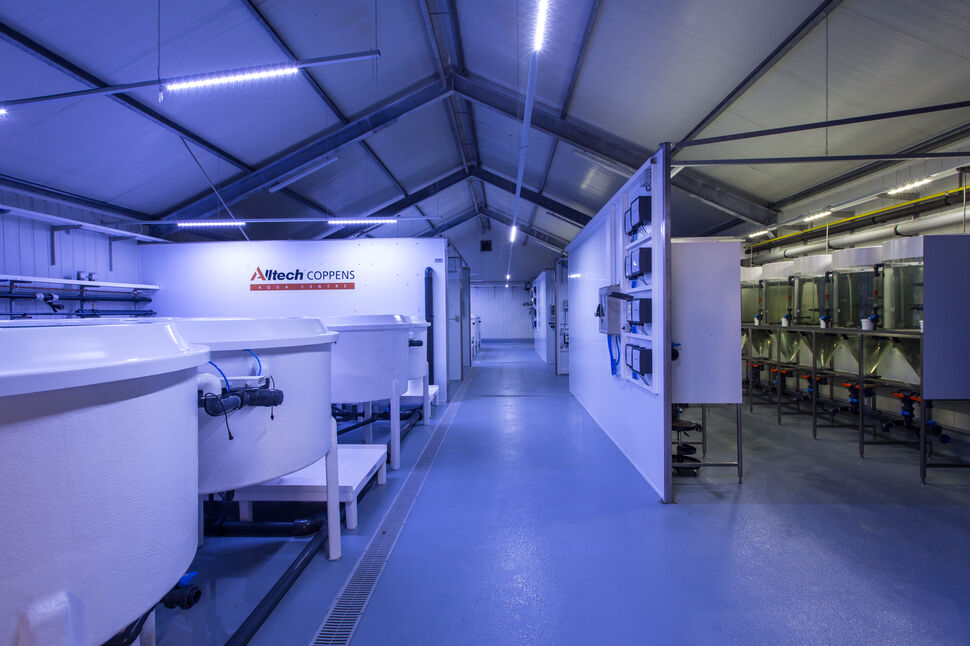
Optimizing eel feed formulations: A step toward more sustainable aquaculture
We're thrilled to announce our new project aimed at optimizing eel feed formulations for sustainable aquaculture. With support from the European Union, Alltech Coppens Aqua Centre BV is collaborating with Wageningen University to develop a feed for eels that reduces their need for wild-caught fish.

Eel farming offers producers a fascinating opportunity to work with one of the most unique and remarkable species of fish, thanks to the eel’s distinctive biology and nutritional profile. One of the eel’s most intriguing features is its complex life cycle. Born as larvae in the distant Sargasso Sea, all European eels make the incredible journey to Europe’s freshwater systems to mature before eventually returning to their birthplace to reproduce. While breeding eels in captivity remains a scientific challenge, aquaculture farms currently support the species by raising young, wild-caught glass eels to maturity. This approach also highlights the potential for innovation and conservation efforts aimed at securing both the future of eel populations and the sustainability of eel farming.
Eels have very specific nutritional needs. They are highly piscivorous, requiring feeds that are high in fishmeal and fish oil to support healthy growth. Because of their short digestive tract and picky eating habits, replacing fish-derived ingredients in eel feeds is extremely difficult.
With support from the European Union through the European Maritime Fisheries and Aquaculture Fund, the Alltech Coppens Aqua Centre (ACAC) is developing a sustainable eel feed that can reduce the amount of wild-caught fish needed to produce eel feeds by half. The ACAC, in collaboration with Wageningen University, will lead the development and testing of this low-fishmeal, low-oil feed by taking an innovative approach. Developing a new eel feed with a 50% lower forage fish dependency ratio (FFDR) that still works to maintain eel health and growth will help secure both the future of the eel as a species and the sustainability of the eel farming industry. This new feed will mark a significant step toward improved sustainability for the eel farming sector.
We'll be sharing more updates on this exciting feed formulation project as it develops. Keep an eye on our website and follow us on social media to stay in the loop!

